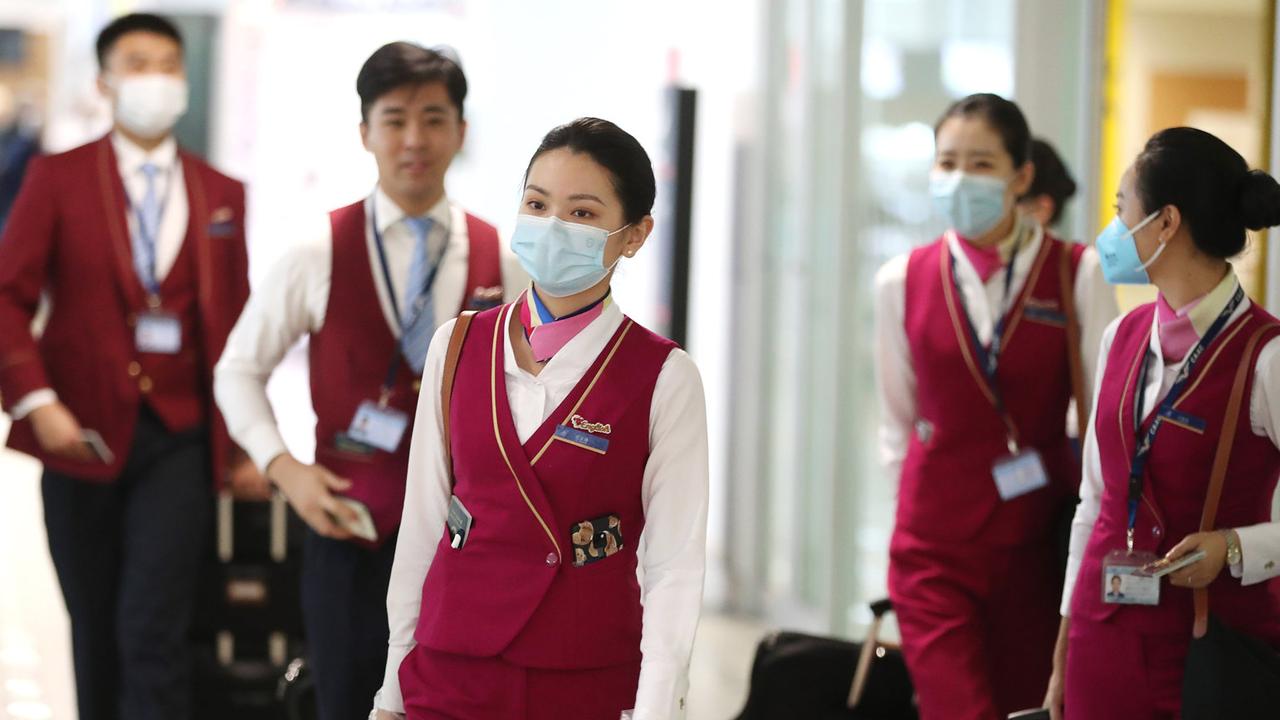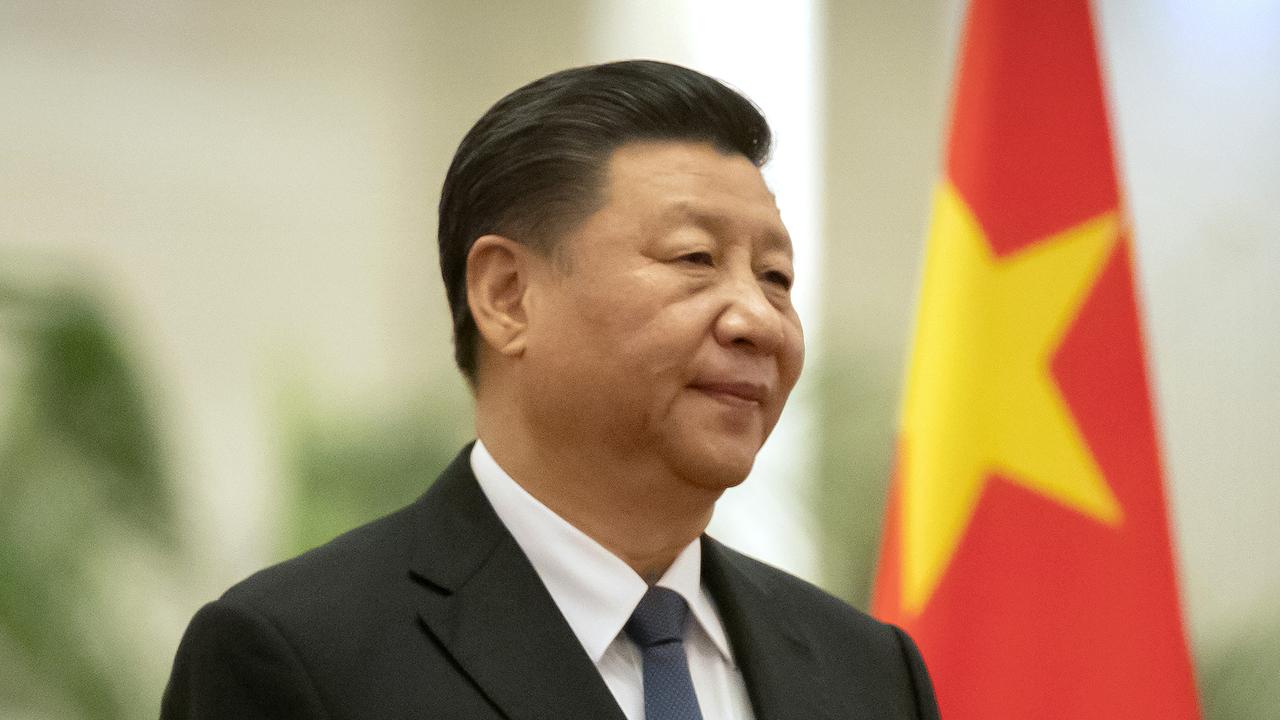How Chinese government’s failed system allowed coronavirus to spread globally
The world is panicked about the spread of the coronavirus. But there’s something at the heart of Chinese society that allowed the contagion to take hold.
Chinese social media users are panicked about the spread of the coronavirus, but authorities keep working to silence their protests.
China’s authority figures are facing increasing local and international scrutiny for not alerting citizens to the virus as soon as they were aware of it, which meant thousands of potentially infected people could have spread it unaware.
Experts say it goes to a problem at the heart of China’s political system, where silence fuels a culture of fear of being seen as stepping out of line.
CHINESE AUTHORITIES CRACK DOWN ON PROTESTERS
Chinese authorities are cracking down on citizens who spread information about the coronavirus and censoring “rumours” about it on social media.
Police in Wuhan have detained at least eight people for “spreading rumours” about the virus, according to state media.
Those eight arrested were doctors, including one who contracted the virus while treating patients.
A commentator from the Supreme People’s Court said the eight arrested were giving their medical opinion on the virus to the best of their knowledge, before it formally being declared a coronavirus.
Press coverage of the spreading virus has been tightly contained in mainland China since it started.
At the same time, at least 258 people have died (the majority being from China).
The total number of infections has surpassed 11,000 — far exceeding the deadly 2002-03 SARS epidemic, and the World Health Organisation has declared the coronavirus a global emergency.

China’s social media pages are flooded with angry netizens lashing out at Chinese authorities, criticising officials for failing to contain the initial outbreak in the locked-down city.
Wuhan’s mayor, Zhou Xianwang, explained he was unable to disclose the severity of the outbreak without receiving approval from Beijing.
“I hope everyone can understand why there wasn’t timely disclosure,” he said. “After I received information, I needed authorisation before making it public.”
It’s a sign of the rare struggle between local government and Beijing, as Chinese President Xi Jinping faces the biggest challenge of his presidency.
CHINA’S ‘RUTHLESS SYSTEM’ SET STAGE FOR CRISIS
Javier Hernandez, the Beijing correspondent for The New York Times, said China’s authoritarian culture had allowed the crisis to take hold.
“China’s authoritarian culture in many ways set the stage for this crisis,” he said on The Daily podcast. “For decades, China has built this ruthless system in which if you are an official in the Communist Party you are expected to be almost perfect. If anything goes bad you are the one who is going to take responsibility and fall.”
As a result of this, local Chinese authorities worry about attracting the ire of Beijing, and so their instinct is to cover up anything negative in the hopes Mr Xi and his inner circle won’t hear about it.
“This has created an incentive system where local officials fear saying anything about bad news,” Hernandez said. “They worry that if they are found to have done something wrong they will lose their power, so in a situation like this the incentive is to cover up, conceal, delay, and try to get a handle on these problems on your own, hoping that perhaps no one will ever hear about it.”

For months and months, Chinese local officials wanted to keep the health crisis from being reported up the chain.
“Instead they tried to cover it up, see if they could deal with it secretly and maybe no one would find out about it. Maybe Beijing wouldn’t find out about it. But eventually it broke.
China said it would make a lot of changes to its system after SARS. It said it would expand its disease-reporting system … they promised to be more transparent in the release of data and other things.”
But according to Hernandez, even the SARS outbreak couldn’t stem China’s authoritarian culture, which has only worsened under Mr Xi’s reign and made people more fearful of being associated with bad news.
“He’s made himself out to be the most powerful leader since Mao. He’s someone who’s always speaking about this great ascendant moment for China, in which China’s going to be this superpower, and anything that goes against Xi’s vision of this harmonious resurge in China will be seen as a problem and the people creating that problem will pay the consequences,” he said.
“When I was there in Wuhan I could sense the fear just ripping across all parts of society. There were people like the ambulance doctors afraid of challenging officials’ statistics. Hospitals didn’t want to test patients for fears of knowing the results. They didn’t want to be seen as speaking out or bringing the truth of this unsavoury story into public view. They’re fearful of being seen as responsible for this crisis. They don’t want to stand out.”

Adam Ni, a China researcher at Macquarie University, said the Communist Party’s prestige and legitimacy hung in the balance as the virus took hold.
Its response to these sorts of incidents — known in party parlance as “sudden incidents” — is critical to the party’s approval and survival.
“Having realised just how serious this is, and how potentially destabilising it is for the party, it is now scrambling to fully mobilise resources to tackle the crisis,” he said. “Ultimately, the Chinese people are likely to judge the party harshly despite the party’s efforts at narrative control.”
He noted the strongman leader’s “prestige” is “likely to take a hit”, saying the stakes are high for Mr Xi right now.
Mr Ni says the Chinese leader will be “showered with glory” when things go right.
“This is high risk, high reward for him,” he said.



